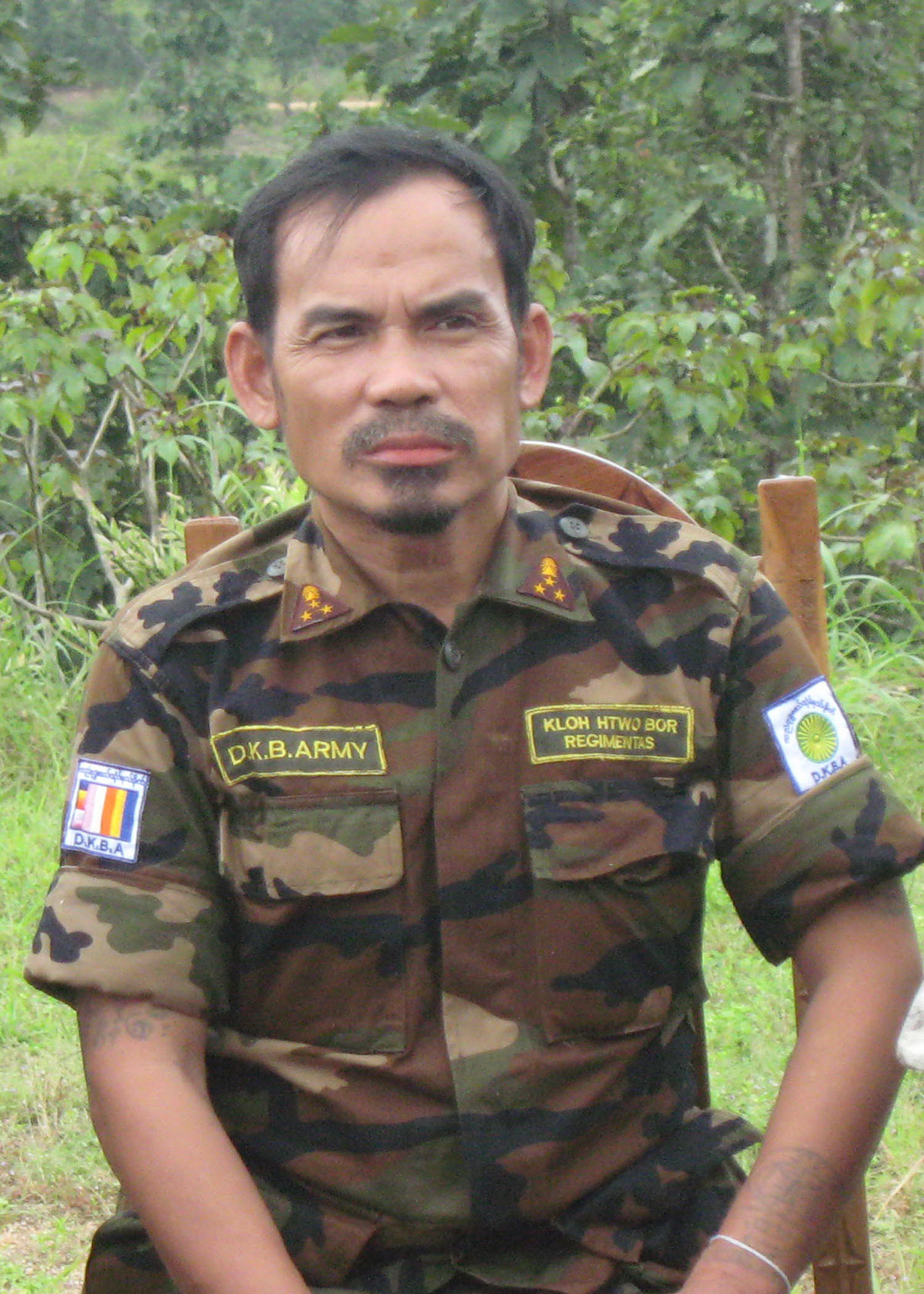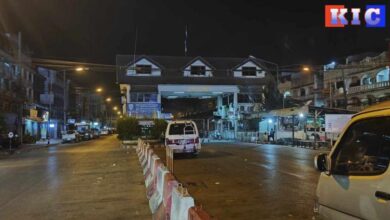The enemy of my enemy

The establishment of Burma’s so-called civilian government following national polls in November has done little to change the realities on the ground in Karen State, but as villagers describe near-daily scenes of armed conflict between government soldiers and a breakaway faction of the Democratic Karen Buddhist Army (DKBA), they also show growing support for the DKBA’s struggle.
“We hear sounds of fighting more often now. During the last few months, we have had to hide in ditches more often. If we go outside the village, we have to be careful to avoid the Burmese army,” said one resident of Kyaik Don village in Kyain Seikgyi Township.
Fighting erupted in Myawaddy Township in November last year as the nation prepared for its first election in more than two decades, and as the Burmese army put pressure on armed ethnic opposition groups to form Border Guard Forces in lieu of disarming.
A group of about 1,200 DKBA soldiers from the 5th Brigade, led by Major General Saw Lah Pwe (also known as Na Khan Mway), rejected the border force plan and attacked Burmese army positions in Myawaddy town.
The fighting between DKBA breakaway forces and the Burmese army has led to the dislocation of tens of thousands of Karen villagers since hostilities erupted on election day, but many in Karen State and among Karen communities abroad have expressed support for the DKBA breakaway group and have even provided financial support for them.
“The Burmese army always tries to divide the Karen. The DKBA has also divided into groups, but instead of becoming allies with the Burmese army, Na Khan Mway is fighting back, which is better,” said one woman from Shwe Koakko village who asked not to be named.
“If you become an ally of the Burmese army, you can only do what they permit you to do. You cannot do anything to help your people.”
Saw Lah Pwe late last year was even awarded the title of “Karen Democracy Hero” by an independent Karen community group based in Norway.
“The award is for all DKBA soldiers of Klo Htoo Baw [5th Brigade] and for all the people,” Saw Lah Pwe said upon being notified of the award. “We will continue trying to achieve democracy and peace in Burma.”
Saw Maw Tho, 58, a spokesperson for the award group, commended the DKBA commander but urged reconciliation with the KNU.
“Na Khan Mway holds the four principles of Saw Ba Oo Gyi in his struggle against the Burmese army. We awarded him the title of ‘Karen Democracy Hero’ in the hope that he will reunite with the KNU. We want him to work for the people, not just for himself.”
Some among the KNU leadership see the struggle of the DKBA against the Burmese army as a principle objective of the KNU and welcome the time when the two groups would work together.
“The DKBA has been lied to by the Burmese junta, which promised that they would become the governing group in Karen State if they assisted in the attack on Manerplaw [in 1995]. They were a military regime at that time. Now they are so-called civilian regime under Thein Sein,” said KNU Vice Chairman Saw David Thakapaw.
“Now the DKBA is fighting to overthrow the regime, fighting for democracy and peace, so their aims are the same as the KNU’s. In the future, if they want to ally with us, we will always welcome them.”
DKBA officers from other regiments have also expressed support for the breakaway faction. Saw Kan Kaung, a former officer from BGF 1016 who defected in April to KNLA Brigade 7, said rank-and-file soldiers as well as officers approve of Brigade 5’s rebellion against the Burmese army.
“Pu Na Khan Mway is doing the right thing. For us, senior officers were forced to accept the BGF plan, and subordinate soldiers had to fall in line. But our minds have always been with Pu Na Khan Mway.”
Support of the DKBA breakaway faction comes amid ongoing reports of unsavory tactics by the faction, including excessive taxes, theft and drug trafficking in order to fund its resistance.
Major Mahn Keedo Zan, a former KNLA officer and comrade of Saw Lah Pwe who has resettled in the United States, said such activities were expected in a revolution and that they would not ultimately prevent Karen communities or the KNU from supporting their goals.
“The Karen revolution in the beginning also involved robbery. You steal to get money for weapons. This was in the old days. [Na Khan Mway] is fighting for peace. Maybe they get money from drugs to get weapons. People shouldn’t just look at the bad side,” he said.
“We have to fight the main enemy. So we will hold on to the theory that says the enemy of my enemy is my friend, and we will fight on.”
Major Saw Hsan Aung, a commander with the DKBA Brigade 5, said the guerrilla war with the Burmese army will continue, despite the country’s much-touted civilian government.
A Karen who has resettled overseas and who wished not to be named also said the Karen peoples’ fight for liberation will continue, and that fight would ultimately unite current factions within the community.
“As long as [Brigade 5] is fighting the enemy, Karen people will support them, even those living abroad. Karen soldiers are peoples’ soldiers. One day, I truly believe that we will stand and fight together under the same Karen flag and the same united organization.”




